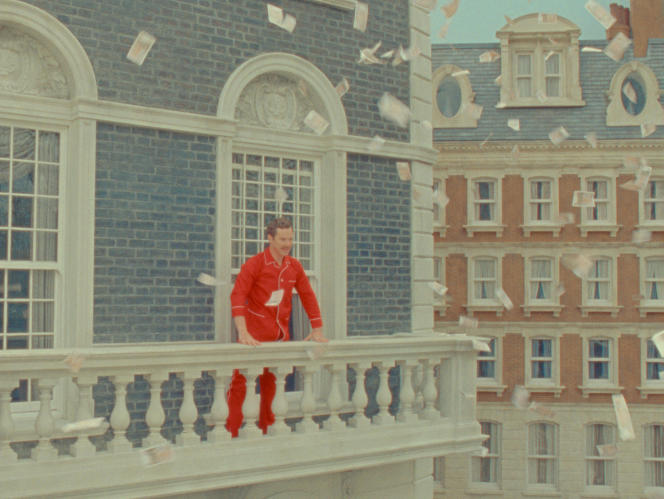Just two years after acquiring The Roald Dahl Story Company for, according to the professional press, $1 billion, Netflix is offering the first fruits of this operation. Contrary to what had been hoped for by the projects announced in series around Charlie and the chocolate factory or musical comedy from Matilda, the children will have to wait. The four short stories that we will discover daily from Wednesday September 27 to Saturday September 30 on the platform are not intended for them. The Wonderful Story of Henry Sugar, The Swan, The Rat Catcher And Poison are extracted from the darkest vein of the immense deposit of fictions left behind by the British writer, who died in 1990.
These adaptations were entrusted to Wes Anderson, logically, since the Texan had made Fantastic Mr. Fox (2009) one of his most beautiful films. A little over three months after the screening ofAsteroid City, at Cannes, The Wonderful Story of Henry Sugar, the first of four short films in this anthology, was presented in Venice. It is also the only one that we were able to see before these four successive postings.
We will therefore have to wait until the end of the week to get a general idea of the project, which will inevitably deviate from the mystical and playful vein of Henry Sugar. Poison, which we will discover last, has already been adapted into a short film, more than sixty years ago, for the “Alfred Hitchcock Presents” collection. The master loved Roald Dahl enough to stage this venomous story himself. In the meantime, The Swan talks about childish cruelty and The Rat Catcher of poverty and inequality.
DIY and sobriety
The Wonderful Story of Henry Sugar therefore offers a gentle entry into Dahl’s world. Wes Anderson chose to portray the writer, in the guise of Ralph Fiennes. Despite its brevity (barely more than half an hour), the story unfolds in a series of flashbacks that fit together. Roald Dahl presents Henry (Benedict Cumberbatch), an inveterate gambler who discovers, from the pen of Doctor Chatterjee (Dev Patel), the case of Imdad Khan (Ben Kingsley), an Indian magician capable of seeing with his eyes closed, who, in turn, , recounts his initiatory journey.
We find the processes at work in Asteroid City, the theatrical machinery, the addresses to the public, the painted canvas decorations. They are here reduced to their simplest expression. We move from arts and crafts to DIY, and Henry Sugar deliberately resembles a school production led by a genius schoolboy.
You have 19.96% of this article left to read. The rest is reserved for subscribers.
